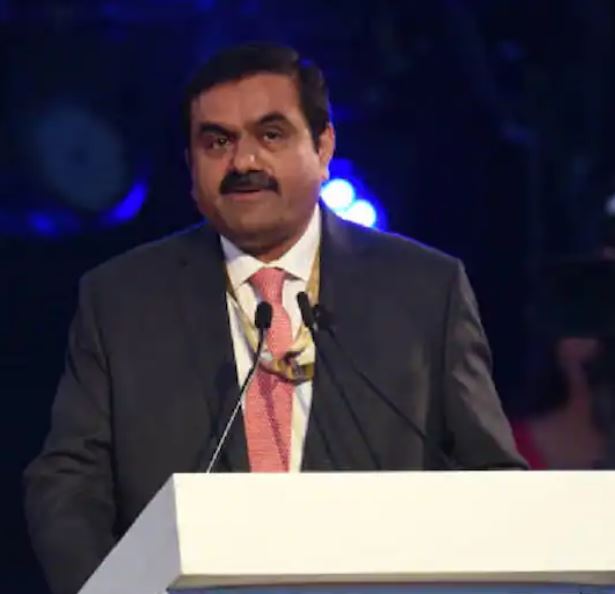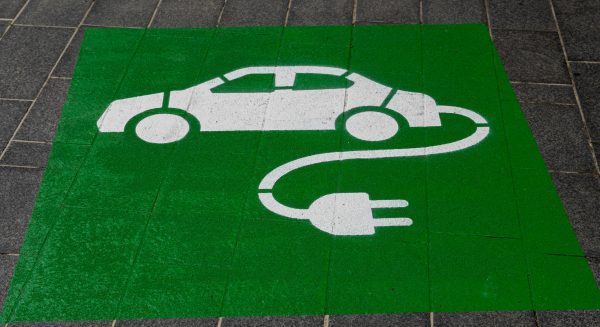Nov 21 (NewYork Times) – Federal prosecutors in New York charged the Indian tycoon Gautam Adani, one of the world’s richest people, with multiple counts of fraud on Wednesday, accusing him and associates of bribing Indian officials and later lying to investors about the scheme.
Mr. Adani, who has amassed a fortune estimated to be over $85 billion from the Adani Group, a conglomerate with holdings in ports, coal mines and airports, was charged with wire and securities fraud by the U.S. attorney’s office for the Eastern District of New York, the office said in a statement.
The defendants are accused of paying more than $250 million in bribes to Indian government officials to obtain solar energy contracts worth billions of dollars for Adani Green Energy, a renewable energy company majority-owned by Adani Group. Mr. Adani discussed the bribery plan with officials in person, prosecutors said.
Adani Green Energy then tried to raise money from U.S. and international investors with a 2021 bond offering on the basis of false and misleading statements about the firm’s anti-corruption and anti-bribery efforts, according to the indictment.
“As alleged, the defendants orchestrated an elaborate scheme to bribe Indian government officials to secure contracts worth billions of dollars,” Breon Peace, the U.S. attorney for the district, said in a statement. Mr. Adani and his associates “lied about the bribery scheme as they sought to raise capital from U.S. and international investors.”
The Securities and Exchange Commission filed a parallel civil case saying Adani Green Energy raised more than $175 million from U.S. investors. One of Mr. Adani’s associates was charged with conspiracy to violate the Foreign Corrupt Practices Act, which prohibits companies that operate in the United States from bribing foreign officials.
Other executives at Mr. Adani’s energy company who were charged Wednesday included Sagar R. Adani, a nephew of Mr. Adani, and Vneet S. Jaain. The government also indicted former employees of a Canadian institutional investor, including Deepak Malhotra, who are accused of conspiring to violate the Foreign Corrupt Practices Act and conspiring to obstruct investigations into the bribery scheme and a grand jury.
A lawyer for Gautam Adani could not be immediately reached for comment. A lawyer for Sagar Adani declined to comment. Mike Kendall, a lawyer for Mr. Malhotra, said his client “is innocent of the charges.”
According to the indictment, the defendants kept track of their bribes and offers to Indian officials using messaging apps, phones and PowerPoint presentations, sometimes using “code names” in their communications. Several of the defendants referred to Gautam Adani as “SAG,” “Mr. A,” “Numero uno” and “the big man,” the indictment said. Mr. Jaain was called “V,” “snake” and “Numero uno minus one.”
The government goes on to claim that two of the defendants engaged in discussions to delete “incriminating electronic materials, including emails, electronic messages and a PowerPoint analysis.”
While Gautam Adani’s investments in critical infrastructure have made him a powerful force in the Indian economy, his political connections have also set him apart. At the heart of them is a personal relationship with Prime Minister Narendra Modi, which has helped Mr. Adani’s company win lucrative contracts. In some instances, the government has changed bidding rules to help the company gain control of airports.
Mr. Adani and Mr. Modi are both from the state of Gujarat, and when Mr. Modi became prime minister in 2014, he flew to New Delhi on an Adani plane. Their relationship has created a widespread perception in India that Mr. Adani can forge any deal he wants, and that there is an uneven playing field.
Mr. Adani has rejected claims of special treatment, saying the foundations of his business were laid when the Indian government relaxed trade restrictions in the 1980s, long before Mr. Modi led the country.
As U.S. prosecutors tell it, the seeds for the bribery scheme involving Mr. Adani were planted between December 2019 and July 2020. Adani Green Energy and another renewable-energy company listed on the New York Stock Exchange won contracts with the Solar Energy Corporation of India, a state-owned company that tries to increase renewable energy use in the country.
Adani Green Energy proclaimed at the time that it had won “the world’s largest solar award.”
It was a $6 billion investment in solar energy, and over 20 years, it was expected to generate more than $2 billion in profit after taxes, according to the indictment. But there was an unintended consequence — the energy was expensive for states in India, and the Solar Energy Corporation of India struggled to find customers to sign on.
In 2020, Mr. Adani and his associates used bribes to help convince Indian states to use their solar energy, prosecutors said. They promised Indian officials approximately $265 million, prosecutors said in the indictment, including $228 million to a single unnamed official, who secured a deal for electricity providers in the state of Andhra Pradesh to purchase seven gigawatts of solar energy.
Between 2021 and February 2022, states and regions including Odisha, Jammu and Kashmir also decided to sign up for the solar power. Around the same time, more individuals joined the bribery scheme, including former employees of a Canadian institutional investor that was the largest shareholder of the energy company listed on the New York Stock Exchange, the indictment said.
Prosecutors said Sagar Adani, Mr. Adani’s nephew, used his cellphone to track details on the bribes offered and promised to officials. For every official, Sagar Adani identified their state or region, how much they were offered and the amount of solar power their region would purchase in exchange for the kickback.
Between 2020 and 2024, Mr. Adani and his associates gave false and misleading information to investors while raising money for the energy venture, the indictment said. Mr. Adani and his nephew lied to investors when their businesses took out a $1.35 billion loan and issued $750 million in bonds in 2021, according to the government, and also did not tell investors about U.S. investigations into their business practices in 2023 and 2024.
The Foreign Corrupt Practices Act, enacted in 1977 but more stringently enforced only in recent decades, has led to huge fines for companies, including Germany’s engineering giant Siemens; Brazil’s state-owned energy company, Petrobras; and a subsidiary of Halliburton, the oil services company. Bribery of foreign officials was also a key element in a vast scandal that involved a Malaysian sovereign wealth fund called 1MDB and entangled the investment bank Goldman Sachs.
President-elect Donald J. Trump wanted to strike down the law during his first term because he considered it unfair to American companies, according to two Washington Post reporters in a book published in 2020. Another critic of the law is Jay Clayton, whom Mr. Trump has chosen to become U.S. attorney for the Southern District of New York.
Mr. Clayton argued in a 2011 paper that the United States’ anti-bribery policies tended “to place disproportionate burdens on U.S. regulated companies in international transactions,” hurting American competitiveness.
Mr. Adani congratulated Mr. Trump on his election in a post on X last Wednesday, promising to invest $10 billion in “U.S. energy security and resilient infrastructure projects” and create up to 15,000 jobs.
Nearly two years ago, Mr. Adani’s Adani Group was accused of “brazen accounting fraud, stock manipulation and money laundering” by Hindenburg Research, a small investment firm in New York. The Adani Group denied those claims, but its stock price cratered after the report.





















Discussion about this post